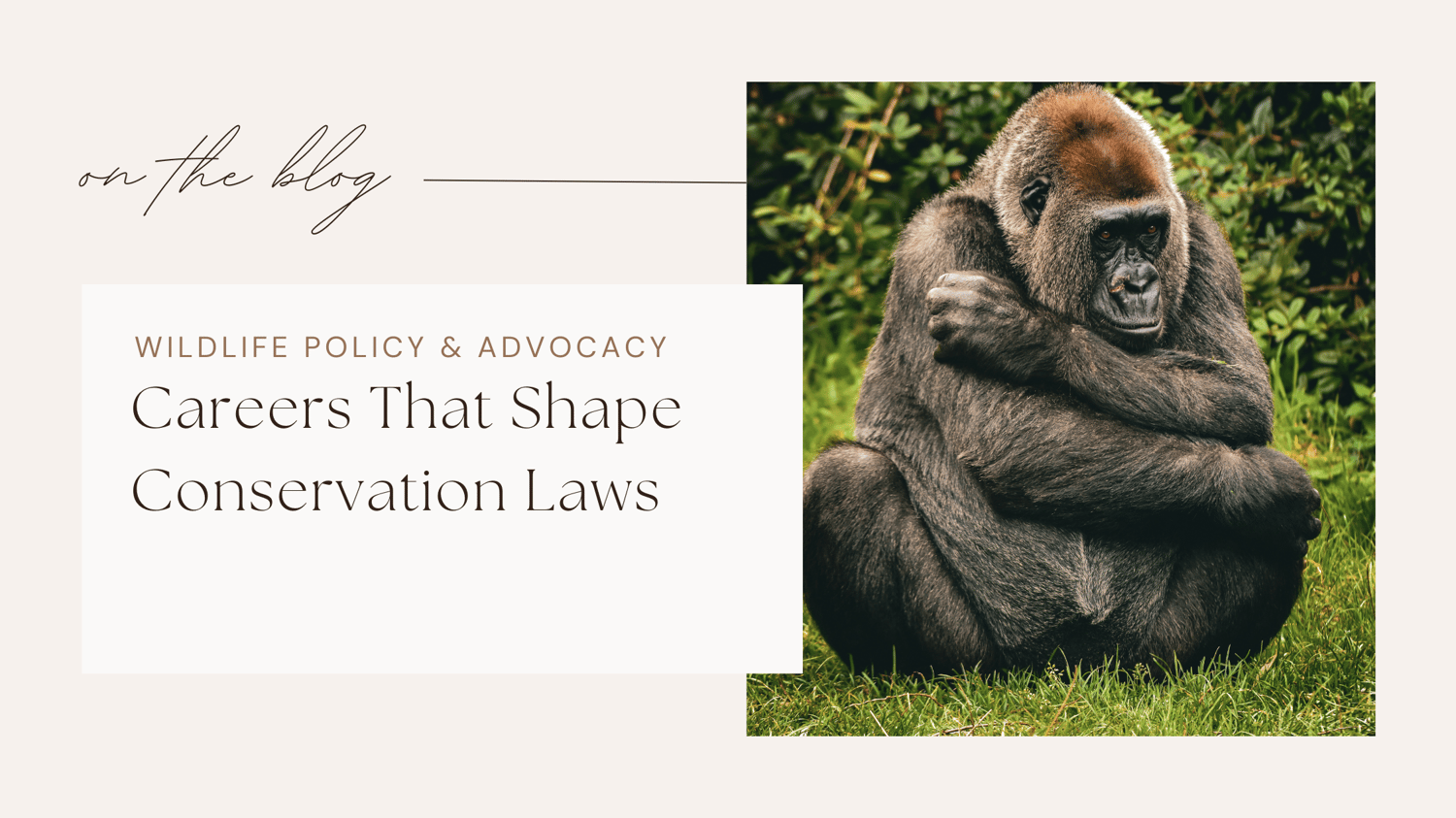When we think of wildlife conservation, images of researchers in the field or vets tending to injured animals often come to mind. However, behind the scenes of every conservation success story are individuals in legal and advocacy roles working tirelessly to influence policies, protect habitats, and ensure the survival of species. These careers play a pivotal role in shaping the frameworks that safeguard our planet’s biodiversity, and for creating systemic change with wide reaching influence.
For more information about policy and advocacy roles and a list of wildlife organisations doing this work see our Wildlife Career Accelerator and Wildlife Work Directory.

[Credit Aaron D'Costa]
The Importance of Wildlife Policy and Advocacy
Wildlife policy and advocacy focus on creating, implementing, and enforcing laws and regulations that protect ecosystems and species. These roles address critical issues such as habitat destruction, illegal wildlife trade, climate change, and species conservation. By influencing decision-makers and educating the public, professionals in these fields ensure that conservation efforts are embedded into legal and societal frameworks. In many cases, conservation laws are the first line of defence for wildlife. Policies can prevent harmful practices, regulate sustainable resource use, and allocate funds for conservation programs. Advocacy amplifies the voices of those who cannot speak for themselves—wildlife—and pushes for systemic change at local, national, and global levels.
Key Roles in Wildlife Policy and Advocacy
1. Environmental Lawyers
Environmental lawyers specialise in interpreting and enforcing laws that protect ecosystems. They work on cases involving habitat destruction, pollution, and wildlife crime. For instance, an environmental lawyer might take legal action against companies violating habitat protection laws or represent communities affected by environmental degradation. Their work also involves advising governments and organisations on legal frameworks for sustainable practices, contributing to drafting legislation, and ensuring compliance with international conservation treaties like CITES (Convention on International Trade in Endangered Species).
2. Policy Analysts
Policy analysts research and evaluate existing laws and propose changes to improve conservation outcomes. They assess how policies impact ecosystems, wildlife, and communities, providing evidence-based recommendations to policymakers. For example, a policy analyst might study the effects of fishing quotas on marine biodiversity or recommend strategies to mitigate human-wildlife conflict in agricultural areas. Their ability to translate complex environmental issues into actionable policies makes them indispensable to conservation initiatives.
3. Advocacy Specialists
Advocacy specialists work for NGOs, nonprofits, or grassroots organisations to influence public opinion and government decisions. Their work involves campaigning for stronger environmental protections, educating the public about conservation issues, and lobbying policymakers.
These professionals might organize protests against destructive projects, launch awareness campaigns about endangered species, or lobby for increased funding for conservation programs. Their efforts build the momentum needed to drive legislative change.
4. Wildlife Crime Investigators
Working at the intersection of law enforcement and policy, wildlife crime investigators uncover illegal activities such as poaching and trafficking. They collaborate with law enforcement agencies to ensure perpetrators are brought to justice and work with policymakers to strengthen laws that deter such crimes.
Skills and Education for These Careers
Wildlife policy and advocacy roles typically require a blend of legal knowledge, communication skills, and an understanding of environmental science. A degree in environmental law, public policy, or a related field is often essential. Additionally, skills in negotiation, research, and public speaking are critical for success.
Internships, volunteering with advocacy organizations, and staying informed about environmental issues are excellent ways to build experience in this field.
Careers in wildlife policy and advocacy may not involve hands-on interaction with animals, but their impact is profound. Every law passed, policy implemented, or public campaign launched creates ripple effects that protect ecosystems and the wildlife within them - which has an overall greater impact than (equally important) direct hands on efforts. For those passionate about combining conservation with legal and social change, this career path offers an opportunity to make a lasting difference in the fight to protect our planet. By working within the legal and political systems, these professionals ensure that wildlife has a voice—and a future.



